This article was originally published on Pessimists Archive.
Quills were once the default writing tool, when pens rose to prominence their impact on writing would be a hot debate in the literary world, one that would repeat when typewriters started to replace pens, and once more when word processors displaced typewriters.
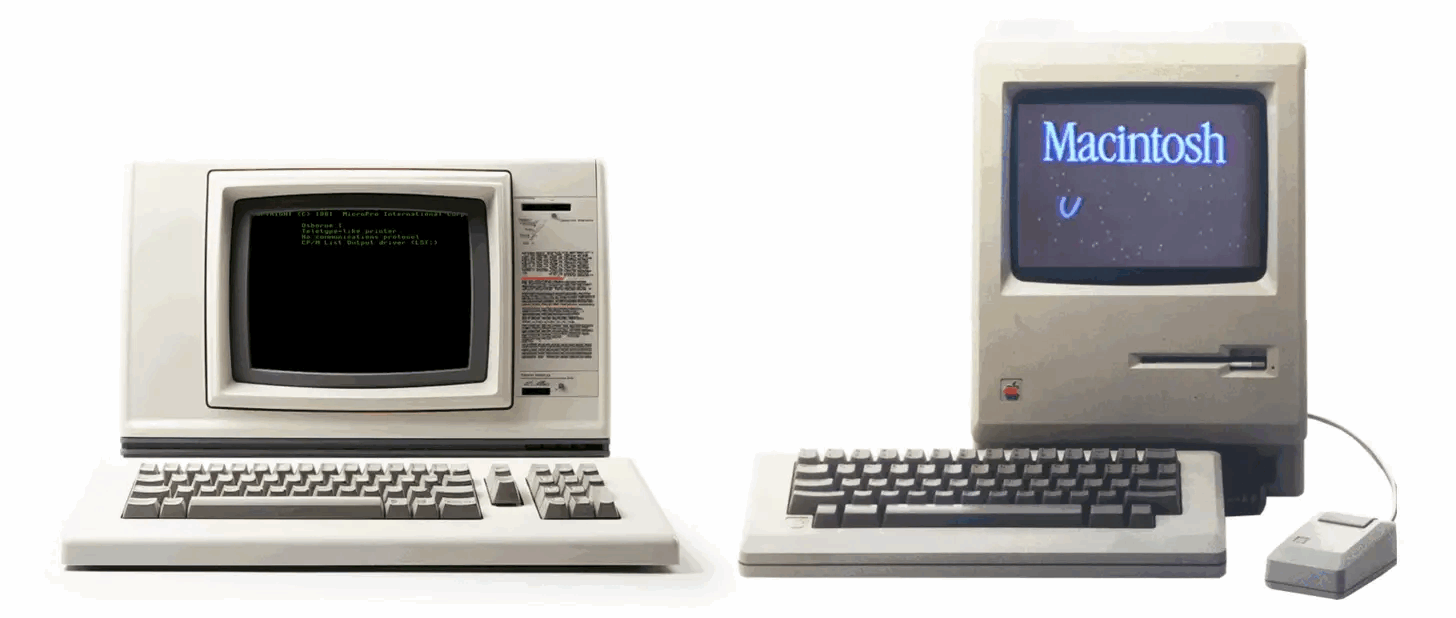
Just as people were coming to terms with word processors in the late 1970s and early 1980s, another evolution in writing tools took place, Apple introduced Macintosh: the first commercially available computer with a Graphical User Interface (GUI.) This new paradigm of computing would garner intrigue.
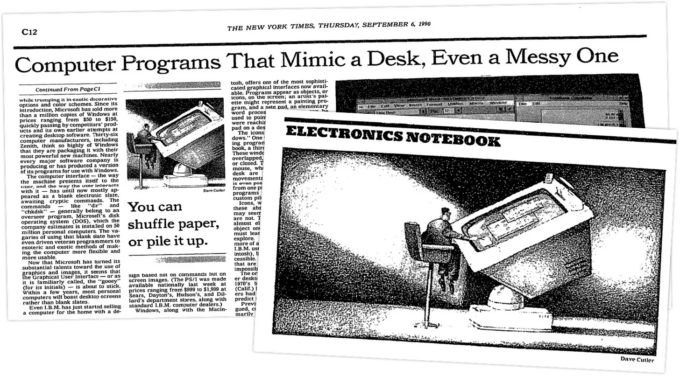
As these new devices made there way onto college campuses, some academics wondered how they might impact student work. At the University of Delaware, one member of the English Department (Marcia Peoples Halio) would conduct a study on the matter culminating in a 1990 paper titled “Student Writing: Can the Machine Maim the Message?”
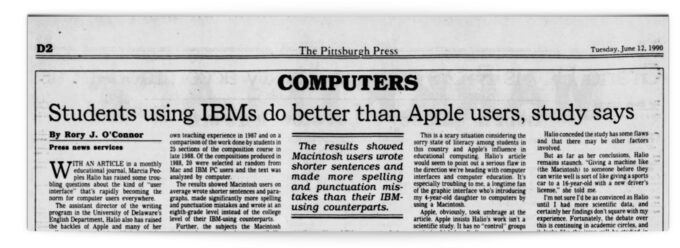
Her conclusion? Students using a Macintosh produced inferior work compared to their counterparts on the austere command line (30% of Macintosh writers used complex sentences, whereas 50% of the IBM writers did.) Peoples Halio would quip in the paper: “Never before in 12 years of teaching had I seen such a sloppy bunch of papers” with regards to work created on the Macintosh.
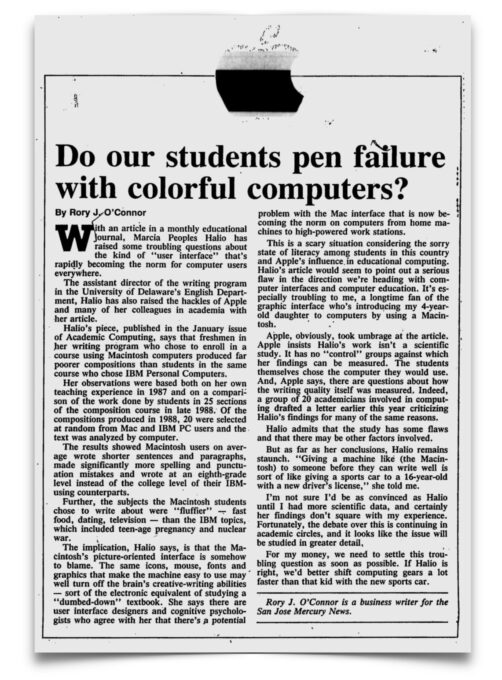
The study would catch the attention of the San Jose Mercury News that would summarize her findings: “The same icons, mouse, fonts, and graphics that make the machine easy to use may well turn off the brain’s creative-writing abilities.” The story would be picked up by numerous outlets, a few international and eventually garnered a mention in The New York Times who noted in 1992 that no study had yet refuted her findings, also noting the criticism it garnered from other academics.
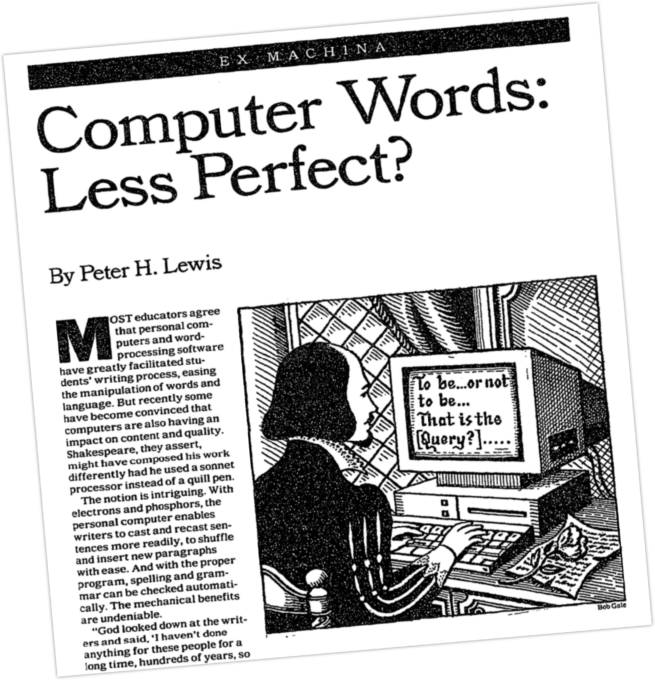
The most popular critique was Halio’s methodology, namely the glaring absence of control groups. An Apple representative swiftly pointed out the studies flaws, Halio retorted, acknowledging some imperfections in her study, staunchly compared giving a Macintosh to an inexperienced writer to handing a brand-new sports car to a gleeful 16-year-old. The Los Angeles Times would admit “the idea that our minds are somehow warped by our word processors” was too compelling to ignore, but was generally critical of the study.
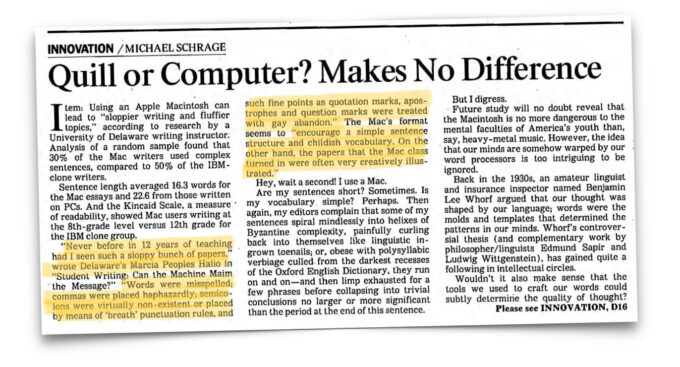
Academic Steven Youra would publish a response to the paper the same year in ‘Computers and Composition’ where he would criticize the study’s inadequate design and flawed logic, criticizing Halio’s limited understanding of the Macintosh’s capabilities.
The authors central point is that students view the Macintosh as a toy, and therefore when they write with it, their language is less formal than that of IBM users, who associate their machine with high seriousness.
Steven Youra, “Computers and Student Writing: Maiming the Macintosh (A Response)”
He refuted the portrayal of Macintosh as fostering immature writing, emphasizing its potential to encourage playful, engaged writing experiences. In 1995, the same journal would publish a study that sought to address the studies flaws – producing results refuting Halio Pope’s findings.
The Chicago Tribune syndicated a column in 1991 co-written by a young Brit Hume, which concluded the debate was moot since GUIs would soon be everywhere, while noting the study likely suffered from sample bias because of the types of students who’d opt for a Macintosh in the first place (less academic more creative types.)
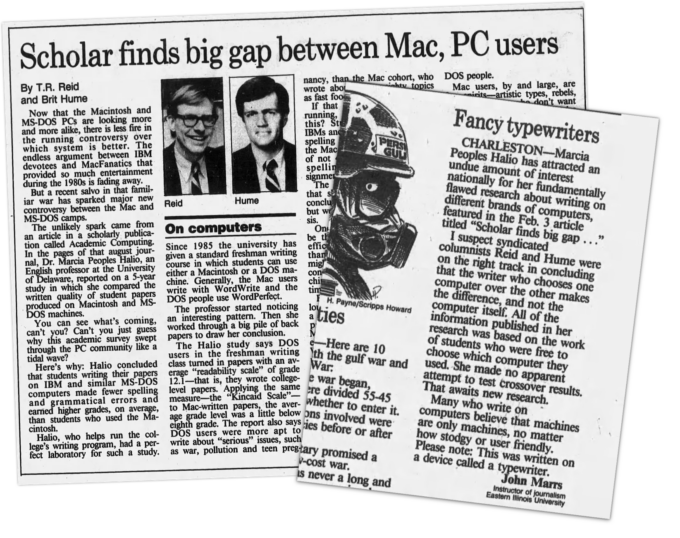
As we’re faced with new evolutions in writing tools – it is worth remembering this little debate and those that proceeded it, going all the way back to the original literary technology: writing itself.
Socrates critiquing writing:
If men learn this, it will implant forgetfulness in their souls. They will cease to exercise memory because they rely on that which is written, calling things to remembrance no longer from within themselves, but by means of external marks.
Plato quoting Socrates in the Phaedrus, 370 BCE
